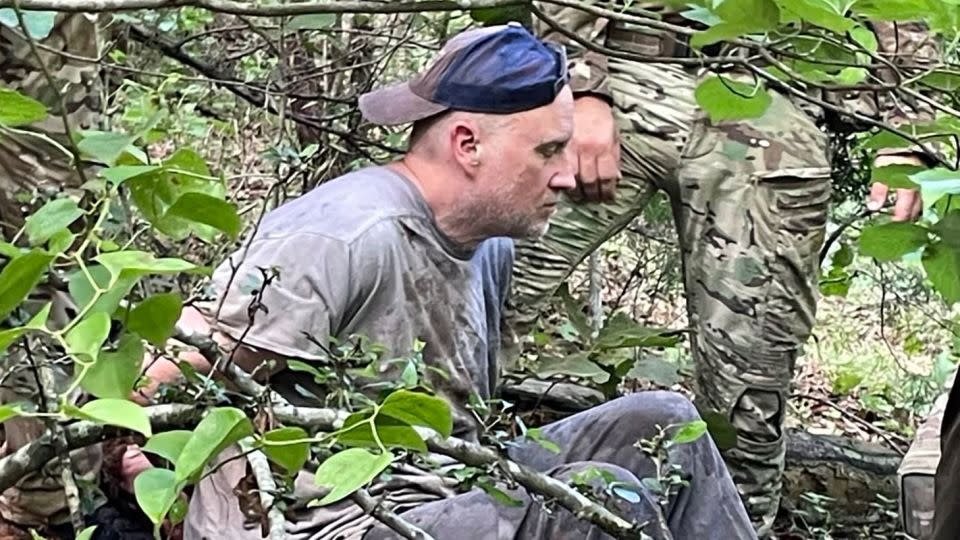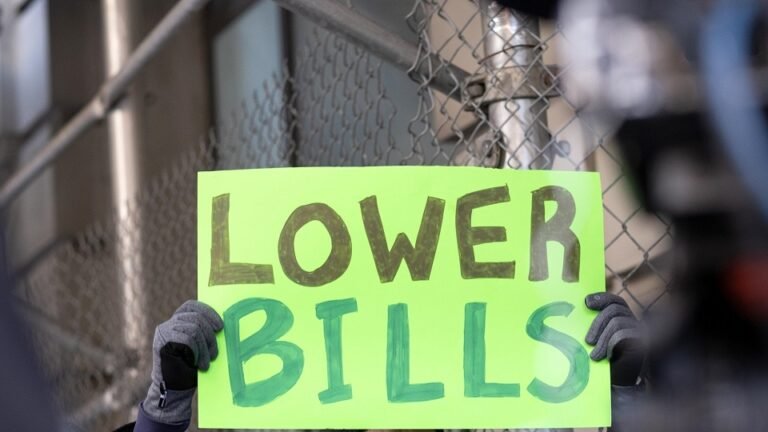In the past several months, several high-profile manhunts that have captured national attention have ended when the fugitives, despite many hours or days on the run, were found close by.
Vance Boelter, who is accused of shooting two state lawmakers and their spouses outside Minneapolis, was found in the woods about a mile from his family home in Green Isle, Minnesota, over the weekend. Last month, half of the 10 inmates who escaped a New Orleans jail were found in the city. And a former Arkansas police chief who escaped prison in May was found 1.5 miles from the facility he’d broken out of 10 days earlier.
Meanwhile, Travis Decker, who is accused of killing his three daughters at a campsite about 100 miles east of Seattle, has been on the run for several weeks as law enforcement continues the search over two counties.
While there are no formulas for avoiding law enforcement while on the run, factors such as ability to plan ahead of time, access to money, and wilderness skills all play a role in how likely they will be able to evade capture, law enforcement experts told CNN.
Here is how those factors, and some mistakes, play into the likelihood of escape:
Knowledge and support in the area
Many fugitives tend to stay in areas they know, be it for the people or knowledge of the area, said Donald Lane, who worked as a Secret Service agent and with the Department of Homeland Security for 20 years.
“They’re much more comfortable in areas that they know well, geographically and socially, quite frankly, and so they tend to stay close,” he said, adding that many people want to be close to those who might help them evade law enforcement, such as family or friends.
The downside to staying close is that’s where investigators will look first for a fugitive, said Steve Prosser, a retired US marshal.
In one prison escape case he worked on, Prosser said, the inmate didn’t have any money or connections to help him. Law enforcement ultimately found him living in the janitor’s closet of the apartment building where he lived before his arrest.
While Boelter wasn’t found in a closet, he was found within close range of his house, where he left a car and there was a reported sighting of him on an e-bike.
Lack of plans
“Sometimes these folks, they’ll plan to take action and do something, but they don’t think too much ahead about what they’re going to do afterwards,” Lane said.
It can be a challenge for fugitives to act quickly enough to get rid of identifying features as law enforcement starts putting up a perimeter, he said.
But it also takes a lot of money to leave either the area or the country, said Prosser. “You have to have a fake passport, which, unlike what you see on TV, is very difficult.”
Even getting items that are harder to trace someone with, such as a different car, requires a good amount of money, he added.
Not wanting to draw attention
Another point that a fugitive must consider is how to get around when their name and face may be plastered on local and national news.
There is a high likelihood that law enforcement agencies will be on the lookout for their car, Lane said. If they get on an interstate, the chances that law enforcement or a citizen sees or reports them are even higher, he said.
Even trying to steal a car not associated with the fugitive could draw attention, according to Lane.
“A lot of times, they would have to (do) an additional crime to get further away, for instance, like a carjacking,” he said. “And they don’t want to do that, and they know they don’t. Because if they do, then law enforcement not only would be all over that, but they would know that they’re most likely the person that they’re seeking.”
Is staying in the woods a successful strategy?
It depends on wilderness expertise and access to resources, experts say.
“If someone has knowledge of a wooded area – in other words, they live there, they may have hunted there, they know that area – they can live there for quite a long time, and those are some of the toughest people to locate,” Prosser said. But it depends on how much preparation they have.
While Boelter was found in the woods about a mile from his family home, it is likely his plan was set off course when police found him at state Sen. John Hoffman’s home, leading him to retreat and change whatever plan he’d had, he said.
Without the right preparation, though, living in the wilderness doesn’t often work long-term as “the situation is something completely different,” Lane told CNN.
“Even if you have survival skills, you’re not equipped in the long term to be self-sustaining without the help of other human beings,” he said, saying many people will ultimately need to resurface in society to get things they need.
“It’s a great thought that you’re going to be able to do it,” Lane said, “but unless you’re Ted Kaczynski and you have an actual dwelling that you can be in, you know that’s not going to work out too well for most people.”













